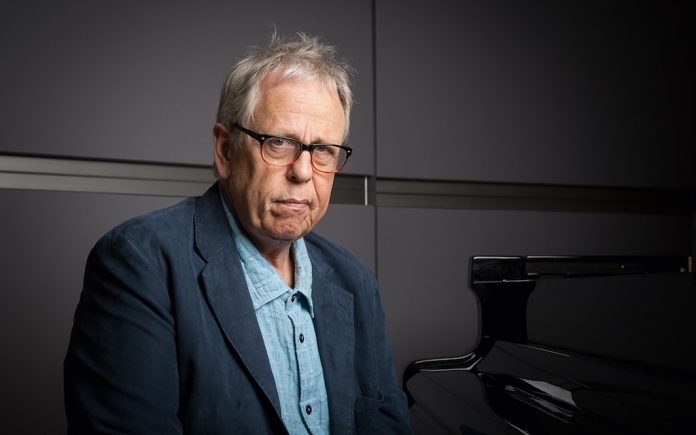Kenny Werner’s 2018 solo album The Space was a work of striking lyricism and improvisational inventiveness. The album’s title was of great significance for Werner: it alluded to a concept that he expounded in his influential 1996 book Effortless Mastery: Liberating The Master Musician Within.
‘I can hear most musicians trying and the effort makes it to me very mundane’
“It’s about letting the music come from a place beyond the conscious mind and accepting whatever comes out”, he explains. “When I’m performing, my conscious mind might keep things from falling apart but it will also keep me from going anywhere profound so I’d rather let everything go wrong, and stay in the space, than try and control with my conscious mind. On this album I allowed things to unfold as they wanted to, from the space”.
But surely, I venture, musicians need to be self-critical. “Self-criticism is a very slippery slope. If people are working on their performance they can record what they do and listen back, taking an inventory of what things they need to work on, but when you’re trying to perform, that is not the time to be self-critical.”
The album included compositions by Michel Legrand, producer Jason Seizer and others. Three further compositions are credited to Werner. “The only formally composed one was Fall From Grace. The other ones [the title track and Fifth Movement], I went into the space and my hands started to play and after they were done I gave the pieces names so they became compositions”.
Werner’s description of recording Fifth Movement is astounding. “I was actually listening to something else, a personal growth thing, in my headphones while I played so literally my hands played by themselves. I was watching my hands but I wasn’t hearing them. There’s a precedent for that – there’s a story about Art Tatum doing a solo piano record and Oscar Peterson, his main disciple, came into the booth to watch and he asked the engineer ‘Why is Art wearing headphones?’ And the engineer said, ‘He’s listening to the World Series!’ And that’s why it flowed – because he wasn’t paying attention.
“So, because I was listening to the talk and not the music the music comes out without ego. That’s not the only way to do it: sometimes I have a picture of a guru on my piano and his eyes are really intense, they’re on fire, and I stare into them and I get kind of lost. I lose connection with my hands but my hands gain consciousness so they make choices instead of me”.
Werner declines to name the guru whose picture he finds so inspirational but spirituality is clearly central to his approach to music. “I can hear most musicians trying and the effort makes it to me very mundane. But sometimes you watch a performance and the performer seems to have been elevated to the level of being not the performer but the instrument and something else is playing him. The question then is who’s playing? Do you believe it’s God? Do you believe it’s Charlie Parker playing through you? It doesn’t matter: it is a spiritual idea that we’re all part of one great ocean and we exist a lot longer if we’re part of an ocean than if we’re a single drop on a kitchen table”.
Werner’s spiritual approach has implications for his practising. “When I practise I’m trying to accrue more technique, not because I want to dazzle anybody with technique but so that when the Creator plays through me he won’t bump up against my lack of expertise”.
Werner is currently the Artistic Director of Berklee College of Music’s Effortless Mastery Institute which he created to propagate his musical philosophy.
“I’m there giving information and inspiration to the students. Seeing students lift the veil and for a moment they become the genius inside and everything they’re playing is just perfect, is very satisfying for me. I’ve experienced that myself many times and I’m finding helping others lift the veil more stimulating than doing it myself. I’m still performing but I’m noticing the performing feels an awful lot like something I’ve been doing for 50 years. Helping these people produces a bigger smile on my face than when I come away from playing even an incredible concert. At this period in my life, if I’ve had some mystical experiences, it’s about passing on that possibility to others”.
















